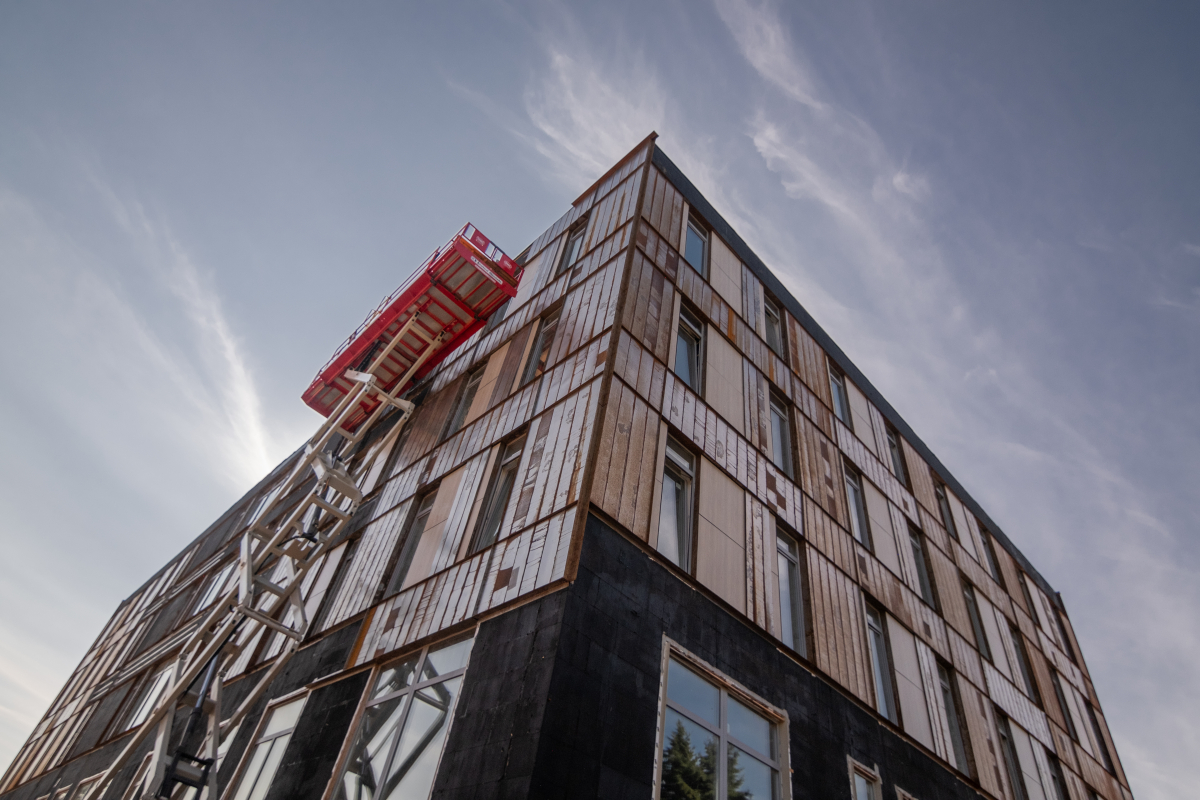
WILMAC Construction
FINALIST Atlantic Business Award of Distinction
Building Success: Young Construction Company Solves Pandemic Problems
Construction may not be the most symbolically ground-breaking industry, but establishing yourself in an existing market, during COVID-19 pandemic, and growing to a team of thirty-five while the entire country faces a labour crisis, certainly is exceptional. That’s what Tyler Macdonald and Alecia Wilson did with their company, WILMAC Construction. Even the name of the company is a combination of both of their surnames: “Wil” for Wilson, and “Mac” for Macdonald.
Construction was a family business for Tyler, growing up on Prince Edward Island. His parents were contractors, and he essentially worked in and around the construction industry his whole life.
But he wanted out.
“I left Atlantic Canada twice, growing up”, Tyler said. "I now respect that I went out there, and I was able to come back here and be with my family and live in such a beautiful place.”
While out west, he began to gather experience as a site superintendent and learned the business side of his industry. All invaluable experience that he brought back home when he got older and decided he needed to live closer to home.
After some time, consulting and contracting on the island, Tyler woke up one day and knew it was time to start his own business. It was 2020, and the COVID-19 pandemic was in full swing.
"Right out of the gate, it was, uh, it was terrifying," Tyler said. “Everybody [was] looking at me and was saying, 'why are you doing this? This is a terrible time to get into this.”
Tyler knew if they could just get through this start-up period, the company would be successful. But issues like the global supply chain shortages put unprecedented challenges at his feet.
“Even for an experienced guy like myself, 20 years being in the business, I've never seen anything to that magnitude,” Tyler said. “It was scary, but also, I look back, and it was fun. It was a different kind of challenge for me.”
They managed to forge ahead, with Tyler and Alecia (his wife) managing the majority of the work working as a contractor and project manager, while hiring out and managing subcontractors for projects. After landing his biggest project to date, Tyler had to decide what the future of the business would be.
"We had 5 buildings under contract, which we'd be paid out in 8 months when they were completed,” Tyler said. “So, instead of me just kind of dwindling everything down and hoping it'll all work out, I went in to see the CBDC."
Tyler went to get a loan for working capital, to bridge the company to the end of the projects, when cashflow would pick up again. He needed to do this in order to still grow and develop the business the way he wanted to.
"It gave me a sense of relief, to get to that 8-month mark, and start to think beyond that 8-month mark. And I started to think of where I'm going to take the company from here,” Tyler said. "I get emotional talking about getting that money."

During this period, Tyler grew the company from just himself and his wife to ten employees, and then very shortly after to twenty, and then thirty-five. But it required some creative thinking.
“I felt like I was walking into a fiery building, trying to scale this business,” Tyler said. “Everybody was saying that there's no labour out there, ‘there's nothing we can do.’ We're hearing it from the construction association, we're hearing it from different labour pools. It's in the news all the time.”
So, Tyler started looking around the world. He realized that while newcomers may not have Canadian experience, or Canadian accreditations, many still wanted to work in the industry, and their experience was tremendously valuable.
“If you have someone coming in and they have a masters in engineering, in civil engineering, and they're from a foreign country. You've got to look at that and you've got to give credit towards that,” he said. “So, we're not getting people that are super super green. We're getting people that have studied building materials, studied how to build.”
Tyler has learned that the most valuable asset is an interest, and willingness, to learn. It does not matter if he needs a translator for the hiring process interviews.
“They may not have the Canadian experience, they may have it from Syria, or India, or wherever. I look at it and say, 'look, with a little bit of mentoring, and these people are going to be fantastic in our organization,” he said. “They have a really good cake. You just have to put some icing on it. And that's kind of what we do."
The team is now up to thirty-five people (and growing), with many of the employees being essential to the company.
For Claus Schmidt, the executive director of CBDC Central PEI, seeing the amount of jobs Tyler has created is impressive.
"Everything always comes down to, 'how many employees are you engaging,' right?” he said. “You really want to see what's the whole impact, because of course it spreads through the whole community.”
Taking small loans and turning them into well-paying jobs, is central to the mission of all Community Business Development Corporations and is precisely how communities are strengthened through entrepreneurship. These results are why, unlike traditional banks, CBDCs look at the full picture when providing loans to aspiring entrepreneurs.
"We talk about character loans,” Claus said. “We don't just look at a credit score, or look at just number variables, we look at the whole picture. And [Tyler] was very impressive. I was very impressed to see his background, his past, what he's done.”
Tyler has become a big proponent of CBDCs, especially for rural communities, which need to find more ways to support future entrepreneurs.
"I think people may not appreciate CBDC until you're an entrepreneur and you go to a bank, and you get your first kind of taste of how banks really are not receptive to small businesses, and these more high-risk situations,” Tyler said. “And then you walk in the door at a CDBC, and it's a completely different scenario. They're there to help … they're going to do everything in their power to help you."
A young Tyler would never have dreamt of it, but with the right experience, work ethic, and network, he has been able to build something to be proud of, in his home province.
"I spent a lot of cold nights in Fort McMurray, by myself in camp, and working hard and working long hours, but I think it paid off,” Tyler said. “I never thought I'd be back on the East Coast, making a good living, and being around and working with my family. It's pretty awesome.”
Thank you to the Atlantic Canada Opportunities Agency (ACOA), who collaborate with us to support small businesses and aspiring entrepreneurs. Together, we will continue to build a stronger Atlantic Canadian economy, fostering job growth and strengthening our rural communities.
